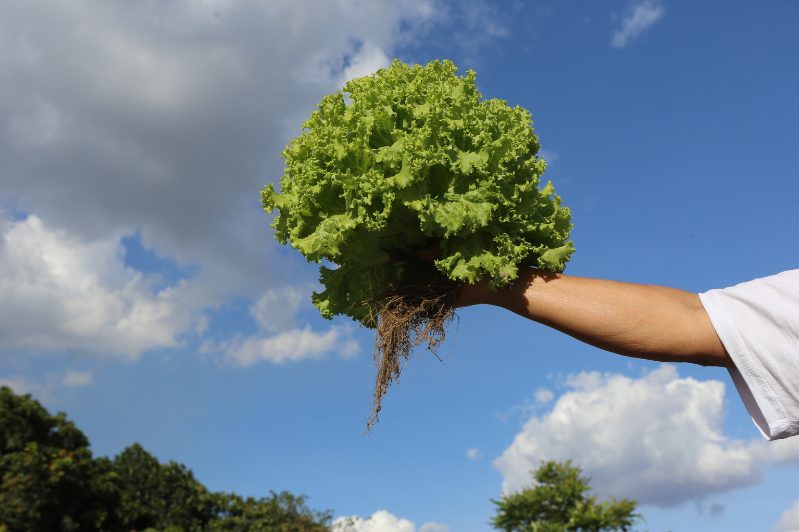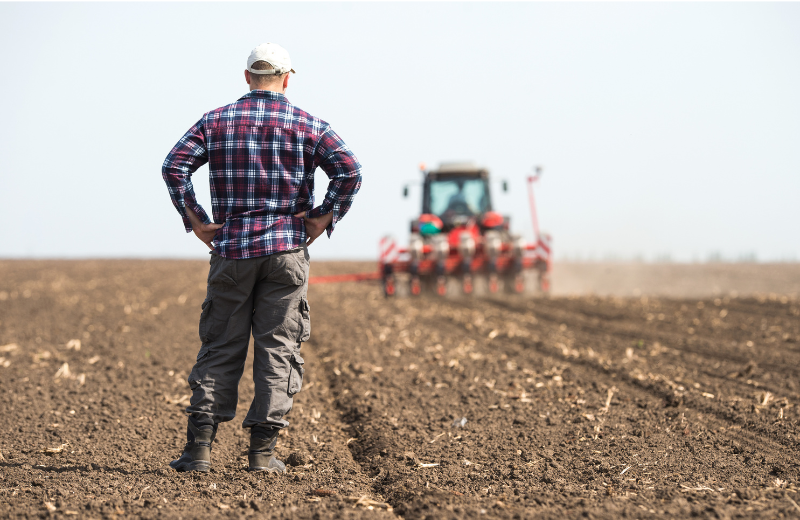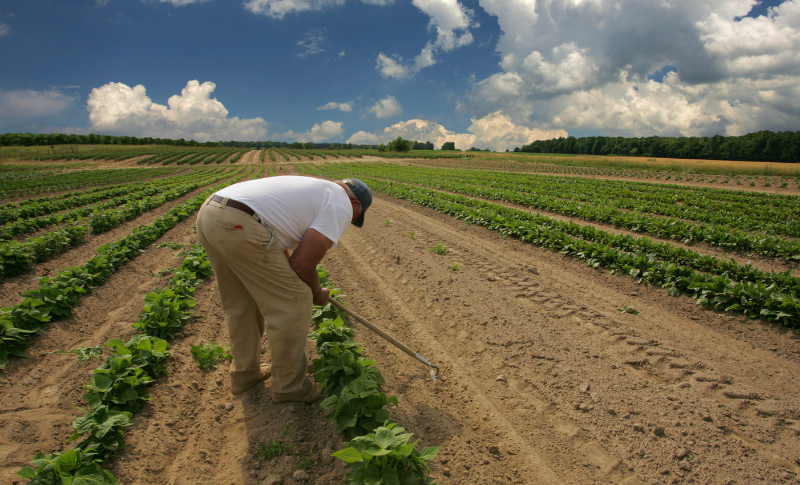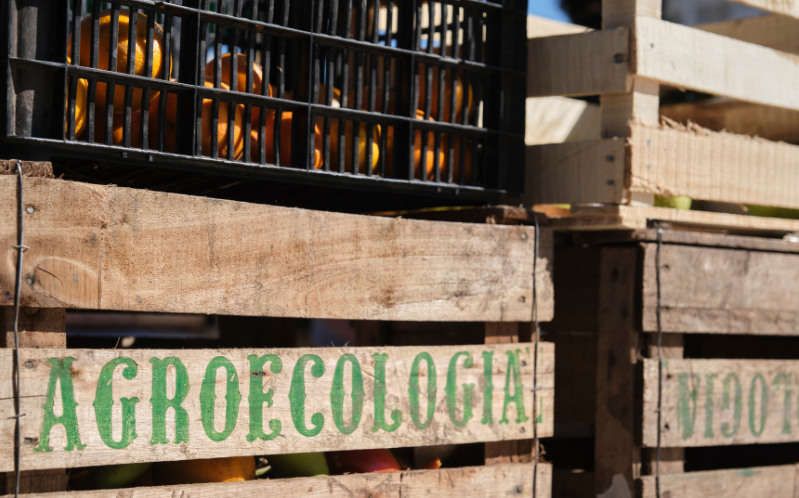
The industrial and globalised agri-food system
We can safely say that there is a hegemonic, highly industrialised and globalised agri-food system. Fortunately, however, many experiences continue to confront and resist this model. Moreover, such experiences exhibit high resilience in the face of the challenges we have before us and will be fundamental in facing new climate scenarios.
Since the outbreak of the Green Revolution in the second half of the 20th century, which led to a one-third increase in global food production, food production began to rely heavily on non-renewable and polluting resources. Together with the globalisation of the food system in the years that followed, this change triggered a series of structural and cultural changes that profoundly transformed our relationship with food.

One of the most significant changes was that food production went from being a local process, with small farmers providing for their own families and communities, to food becoming part of the globalised market and one more element in the commercial strategies of large corporations. This shift meant that food was no longer considered a common good but treated as a commodity in the prevailing economic system. Before this point, food had a primary role: to nourish and enable the full development of individuals, with communities working to ensure that their production was not compromised.
As food production began to respond to the needs and dictates of the market, it lost this central role, and dynamics began to take hold that jeopardised access to healthy food for the entire population. The commodification of food left a large part of its distribution and marketing in the hands of a few multinational corporations, which now accumulate a great deal of power and are characterised by the big brands available in supermarkets. This model, which, as mentioned above, increased food production and the capacity to distribute food, still does not guarantee access to food.
Currently, food is produced for 10 billion people worldwide, which is more than enough to feed the entire world population, although more than 700 million people still suffer from malnutrition. This fact shows us the great paradox of the industrial agri-food system, as it cannot eradicate hunger in the world, not because of insufficient food production but because access to quality food is neither fair nor equitable for the entire population. Furthermore, the control of the food system by large corporations has also led them to monopolise common natural resources such as water, land and seeds, speculating on them and restricting access to them by local communities. Thousands of peasants, especially in the Global South, have lost the ability to produce food for their consumption, condemning them to suffer from food insecurity.
In short, the industrial agri-food system is highly unsustainable from both environmental and social perspectives and is a generator of great injustices.
Agroecology and Food Sovereignty

To address the shortcomings of the industrial agri-food system, practices and initiatives emerge from the knowledge accumulated over generations by farmers around the world. Agroecology is known mainly for its characteristic practices, which stand out for not using agrochemicals and for presenting combinations of crops and high biodiversity, which generate positive associations between the elements that make up agroecosystems and optimise their development. Unlike the industrial agri-food system, agroecology is developed based on peasants’ decisions and management so that producers recover their power within the food chain and their work is respected and revalued. Thus, agroecology provides local, seasonal, and ecological food through short marketing circuits, generating wealth in the territory. Likewise, it recovers and protects traditional crop varieties and breeds, with the knowledge linked to their management, and keeps the rural world alive, manages the territory, cares for the landscape and fosters links between producers and consumers.
But agroecology does not stand alone: it is part of Food Sovereignty, a political movement that arose from the organisation and struggle of peasants around the world. In the 1990s, small producers organised themselves to confront and said enough to the marginalisation and loss of rights to which the globalisation of the industrial agri-food system was condemning them. Many of these people had seen how the emergence of large multinationals creating a globalised food system had led to the privatisation of the natural resources that allowed them to feed their families and generate a small income for their livelihoods, putting their own development at risk. This is how the Via Campesina movement came into being, bringing together thousands of peasants from all over the world to fight against the destruction and inequalities produced by the globalised food system. Among its most remarkable actions are the development and internationalisation of the concept of Food Sovereignty, now recognised by official bodies. Food Sovereignty advocates treating food as a human right we must guarantee for the entire population and cannot subordinate to market dynamics. It states that the population has the right to decide about their food or, in other words, to choose what food they consume and how and for whom it is produced, among other things. Furthermore, as an indispensable element, Food Sovereignty defends that the resources that enable food production, such as land, water, seeds or knowledge, must be commonly accessible and cannot be privatised so that all the people can grow food. Thus, putting producers’ and consumers’ needs and demands at the centre, this movement gives power back to the links in the food chain that the industrial food system has tried to weaken.
The expansion of agroecology in Spain

The need to change the paradigm to which the industrial agri-food system relegates us has led many communities to start working towards a transition to more sustainable, healthy and fairer agri-food systems. One of the initiatives urging cities to get down to work is the Milan Pact, signed by 210 cities, including Barcelona, Cordoba and Zaragoza. This initiative has allowed large cities to develop and encourage actions that promote agroecology and Food Sovereignty in their territory. In Spain, the emergence of the Network of Municipalities for Agroecology stands out, which brings together local entities of various kinds (associations, civil society organisations, government technicians, etc.) to coordinate actions and generate knowledge exchange to create local policies focused on promoting the right to sustainable, local, fair and healthy food for the entire population.
REFERENCES
The Milan Pact | Sustainable Food | Municipality of Barcelona
Via Campesina: Globalise the Struggle, Globalise Hope!
Agroecology and Food Sovereignty – OSALA (in Spanish).
What is the Network of Municipalities for Agroecology? (in Spanish).
Author
Doctoral student in INGENIO [CSIC – UPV].
Member of the Chair in Agroecology and Food Systems | UVic

